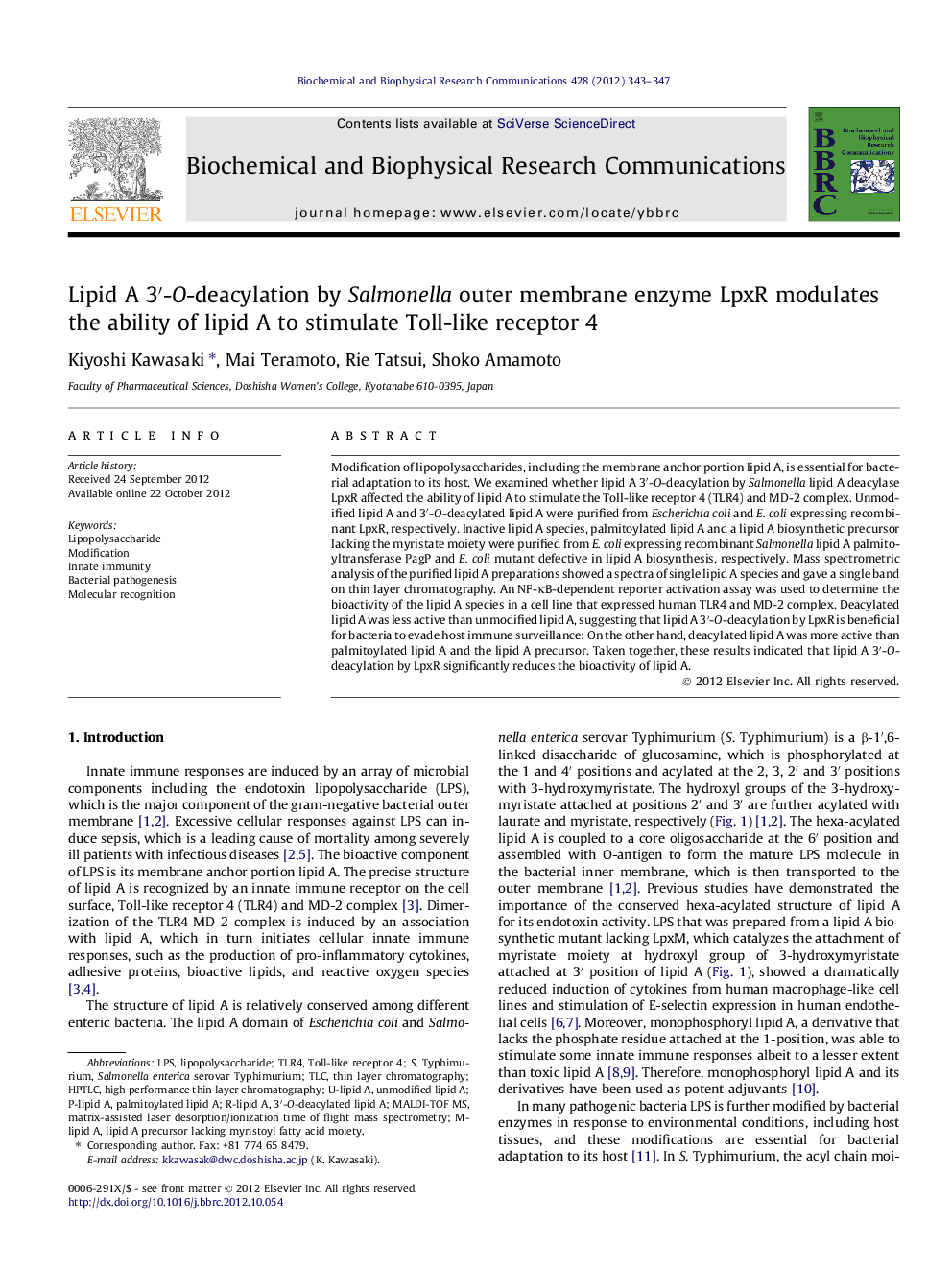| Article ID | Journal | Published Year | Pages | File Type |
|---|---|---|---|---|
| 1929165 | Biochemical and Biophysical Research Communications | 2012 | 5 Pages |
Modification of lipopolysaccharides, including the membrane anchor portion lipid A, is essential for bacterial adaptation to its host. We examined whether lipid A 3′-O-deacylation by Salmonella lipid A deacylase LpxR affected the ability of lipid A to stimulate the Toll-like receptor 4 (TLR4) and MD-2 complex. Unmodified lipid A and 3′-O-deacylated lipid A were purified from Escherichia coli and E. coli expressing recombinant LpxR, respectively. Inactive lipid A species, palmitoylated lipid A and a lipid A biosynthetic precursor lacking the myristate moiety were purified from E. coli expressing recombinant Salmonella lipid A palmitoyltransferase PagP and E. coli mutant defective in lipid A biosynthesis, respectively. Mass spectrometric analysis of the purified lipid A preparations showed a spectra of single lipid A species and gave a single band on thin layer chromatography. An NF-κB-dependent reporter activation assay was used to determine the bioactivity of the lipid A species in a cell line that expressed human TLR4 and MD-2 complex. Deacylated lipid A was less active than unmodified lipid A, suggesting that lipid A 3′-O-deacylation by LpxR is beneficial for bacteria to evade host immune surveillance: On the other hand, deacylated lipid A was more active than palmitoylated lipid A and the lipid A precursor. Taken together, these results indicated that lipid A 3′-O-deacylation by LpxR significantly reduces the bioactivity of lipid A.
► Deacylated lipid A is purified from E. coli expressing Salmonella LpxR. ► Deacylated lipid A is less active than unmodified lipid A. ► Deacylated lipid A is more active than palmitoylated lipid A. ► Hydroxymyristate at 3′ position is involved in inactivity of lipid A precursor.
